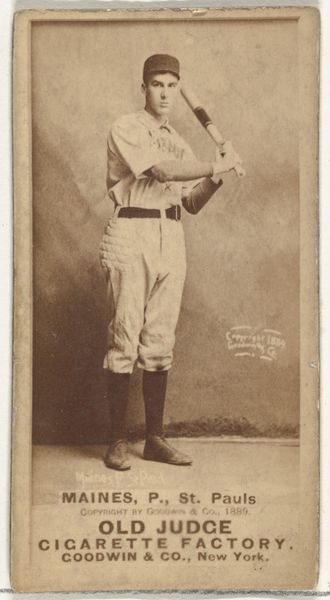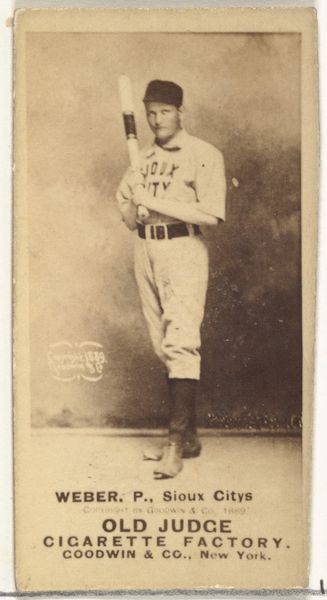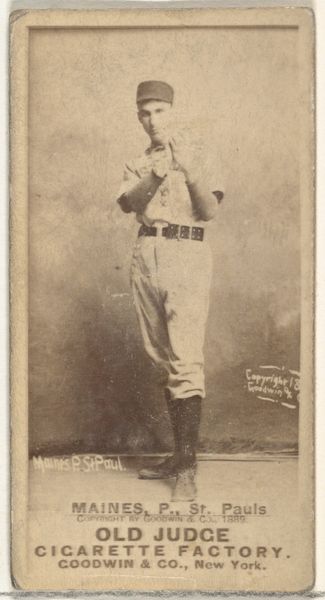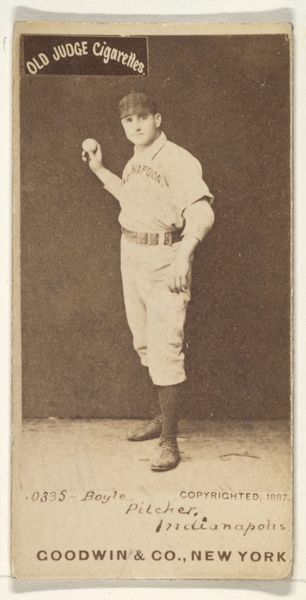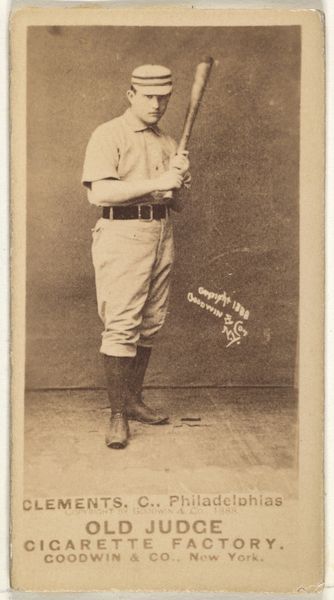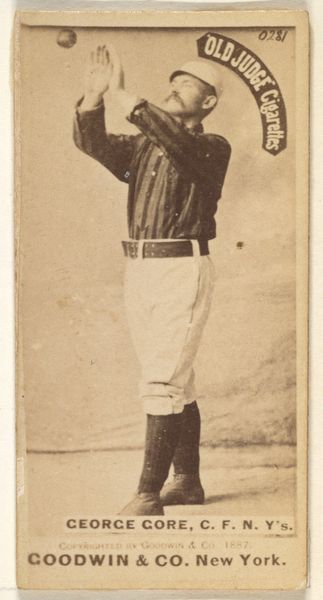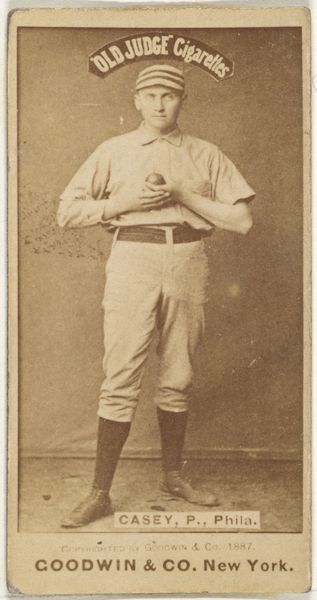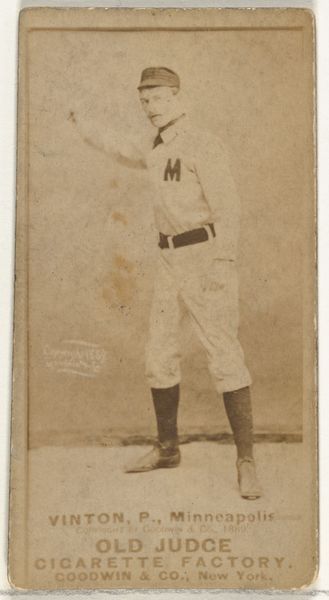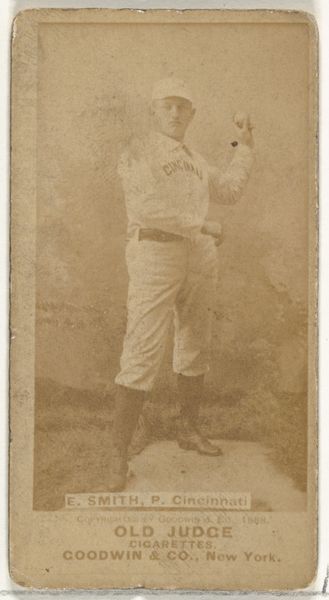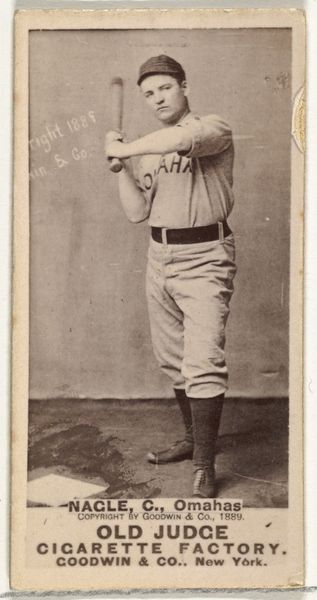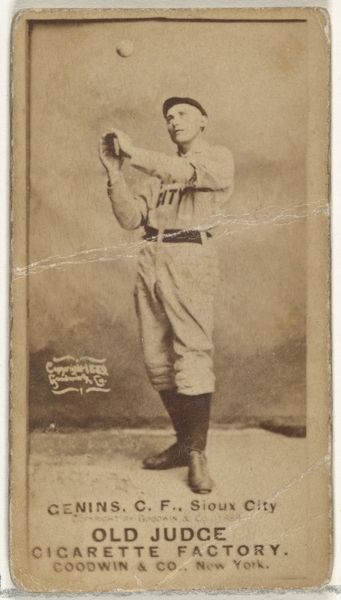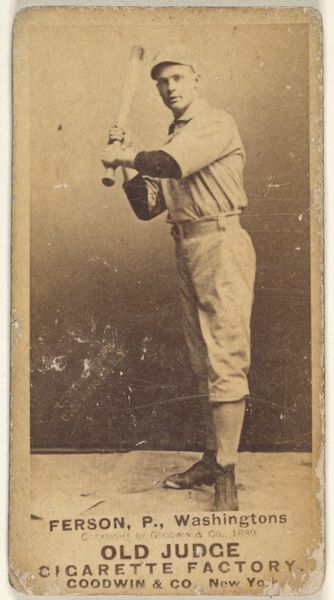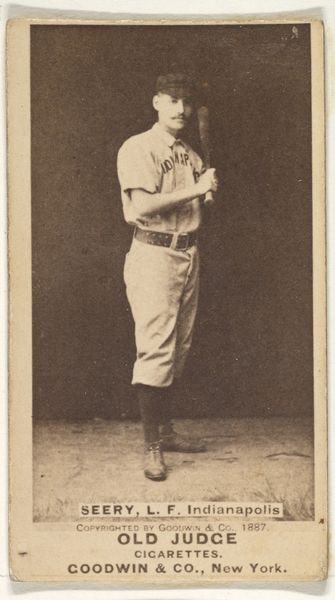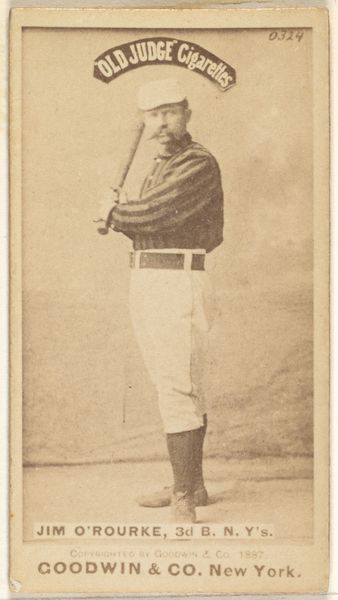
James Edwin "Jim" Powell, Manager and 1st Base, Sioux City Corn Huskers, from the Old Judge series (N172) for Old Judge Cigarettes 1889
0:00
0:00
drawing, print, photography, albumen-print
#
portrait
#
drawing
#
toned paper
# print
#
old engraving style
#
baseball
#
photography
#
personal sketchbook
#
albumen-print
Dimensions: sheet: 2 11/16 x 1 3/8 in. (6.9 x 3.5 cm)
Copyright: Public Domain
Curator: Ah, here we have "James Edwin 'Jim' Powell, Manager and 1st Base, Sioux City Corn Huskers," a piece produced in 1889 by Goodwin & Company. It’s from their Old Judge series, an albumen print originally included in cigarette packs. Editor: My initial impression is one of both incredible nostalgia and directness. The tones are sepia, with incredible contrast, and the player is depicted in a straightforward, almost documentary style, gripping his bat with quiet intensity. Curator: Indeed, the compositional elements are stark. Notice the figure's positioning against a nondescript background; there’s a lack of depth which focuses our attention almost entirely on Powell himself. The use of line, especially in his uniform and the baseball bat, directs the gaze. Editor: The symbols speak volumes, don't they? Baseball, even then, represented American ideals—fair play, competition, community. And this particular image, packaged with cigarettes, reflects the burgeoning commercial culture of the late 19th century, intertwining sport, leisure, and consumption. Powell himself, as both manager and first base, is doubly representative of leadership and prowess. Curator: Precisely, but the execution! Observe how the albumen print enhances the textural detail, from the stitching of the baseball uniform to the grain of the wood in his bat. The tones themselves generate that incredible feeling, highlighting form and contour! It makes us see the man and understand his solidity as a physical form. Editor: There is something almost mythological to this type of printed card. Think of all those lost stories. Here’s Powell forever fixed at the intersection of sport, capitalism, and iconography, transformed into an enduring symbol. His likeness represents a cultural memory that persists in various forms today. Curator: You’re right. I’ve seen elements of this composition repeated countless times through baseball trading cards even today! Editor: In the end, this simple image says something grand. What began as simple advertising metamorphized over the century into something deeply ingrained within our collective memory. Curator: Yes, indeed. Through our exploration, it transforms. It takes on weight, historical meaning.
Comments
No comments
Be the first to comment and join the conversation on the ultimate creative platform.
